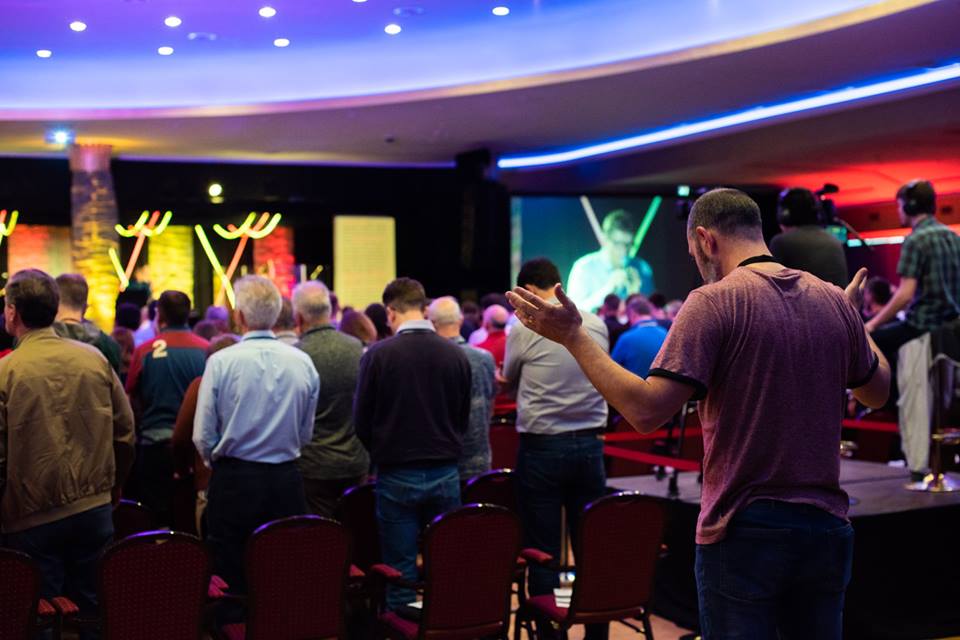Some of the ideas about mission and society shared at the #2018ELF conference in Poland.
 One of the plenary sessions of the 2018 European Leadership Forum. / FOCL
One of the plenary sessions of the 2018 European Leadership Forum. / FOCL
More than 700 Christian leaders coming from across Europe spent a week together, reflecting on how to better serve God’s mission in the continent. These were some of the key ideas heard at the conference.
1. Communicate the Christian worldview respectfully and with rigour
Many times, society expects evangelical Christians to be hard to talk to, intolerant, or even hateful. We need to be people of integrity, warmth, and grace as well as conviction, engaging respectfully with anyone, never undermining the message of the gospel.
In a very secularised context, Christians will not be treated fairly at times. As professor of philosophy and ethics Paul Copan said, quoting Christian author Stuart Briscoe: “We need the mind of a scholar, the heart of a mother, and the hide of a rhinoceros”.
2. Remember that success comes always from God
Looking at King David’s life (morning Bible expositions) one becomes aware of the fact that God may choose their servants because of their weaknesses. That is why it is important for Christians to acknowledge how much they depend on the Lord.
David defeated Goliath because he believed that God’s grace is uncountable, trusting God was his best weapon. Our identity in Him is what gives us strength and security. “Our job is to be faithful, not successful”, summarised Bible scholar Peter J. Williams.
 Bible expositions at ELF 2017. / FOCL
Bible expositions at ELF 2017. / FOCL3. Be ruthless with personal sin
Looking at the story of 1 and 2 Samuel, it becomes clear how easy it can be to take God’s grace for granted, especially for those who have been given some kind of spiritual authority in Christian organisations. “A risk is that we become more and more comfortable with the things that come with leadership”, the Bible expositor said.
King David departed from the God that he had trusted with all his heart in his youth, when he started ignoring Scripture. David, the good shepherd who was ready to give his life for his sheep (foreshadowing Jesus Christ), would later hold the life of the people around him as cheap.
“Cherishing our own sins” is the straightest path to disaster, and the consequences of the fall of a Christian leader will not only destroy his/her personal live, but also deeply affect the lives of family, church and the gospel witness.
4. Give voice to children and young people
Local churches need to be places where young people feel free to express themselves. Many leave because their questions and doubts are never addressed, therefore it is essential to be aware of the challenges children and young people face.
Time and genuine relationships are key when dealing with teenagers if we want to see them thrive in their Christian walk. Churches not only have to equip young people, but also give them the opportunities to actively share the gospel with others, evangelist Amy Orr-Wing explained.
5. Escape the Christian filter bubbles
Though social media platforms have only been around for about 10 years, they are now perceived as almost indispensable. In a digital world in which “the centre-ground of discussion has been eroded”, Christians should make special efforts to “see through their own filter bubbles” when they communicate, media expert Tony Watkins said.
Furthermore, as we learn to navigate in a culture of frayed nerves and polarisation, the followers of Jesus should model the ability of building bridges, starting honest conversations about important issues in an environment of respect and passion for the truth.

6. Work with others with a mission mindset
During lunch time the last day of the conference, member of the Steering Committee Stefan Gustavsson and Director Greg Pritchard emphasised the vision that drives the European Leaderhip Forum.
The evangelical movement goes beyond denominational barriers to unite people who share the common goal of evangelising Europe and renewing the Biblical church. Every participant was encouraged to widely share everything they had benefitted from during the week with others in their own national context. Beyond the annual conference and the year-round initiatives, everyone was challenged to start projects that address the needs of church and society back home.
Learn more about the European Leadership Forum by visiting its website.

Las opiniones vertidas por nuestros colaboradores se realizan a nivel personal, pudiendo coincidir o no con la postura de la dirección de Protestante Digital.
Si quieres comentar o